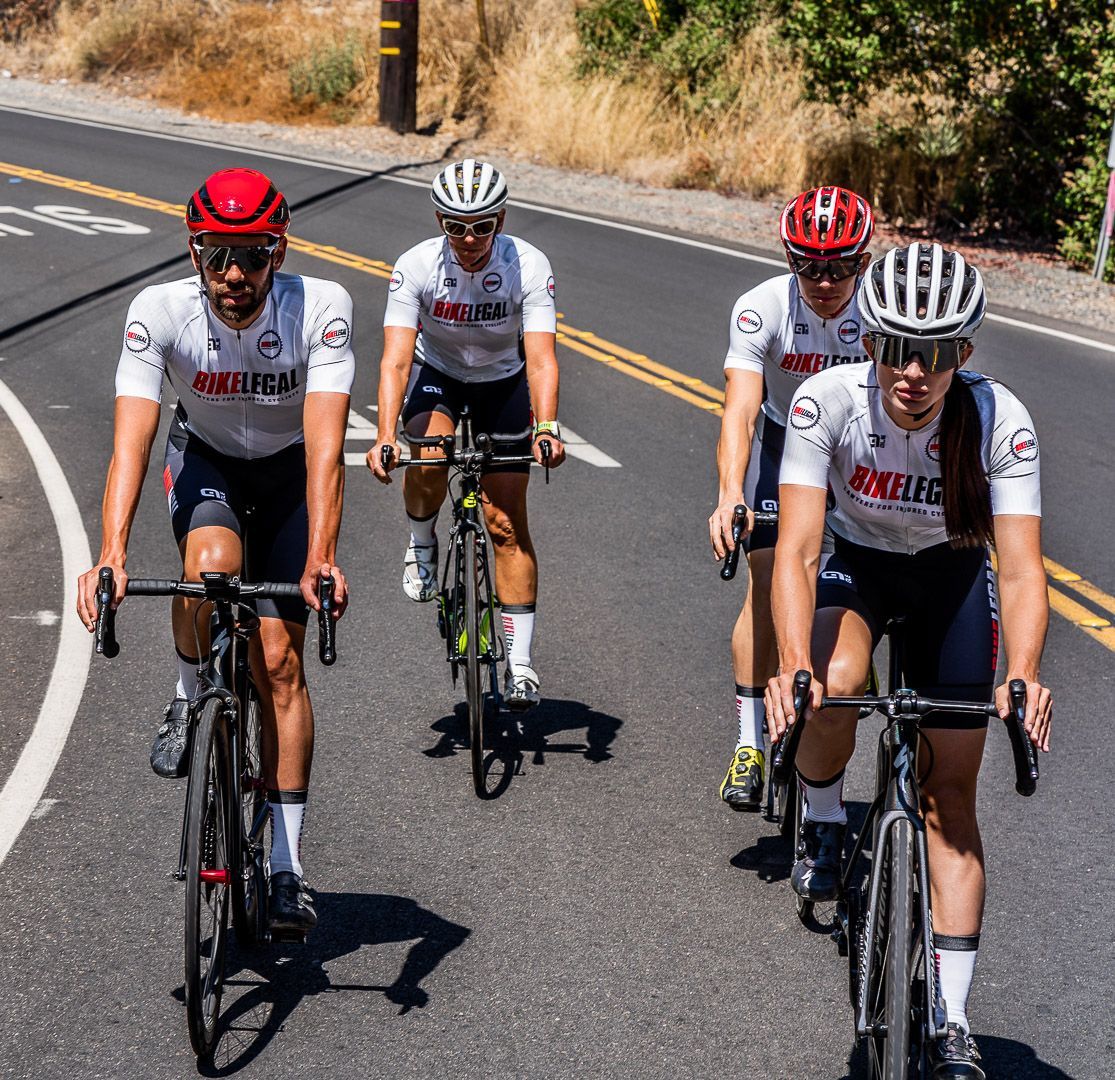How Much do Pro Cyclists Make? Cycling Salary Rate
Follow us on
social media!
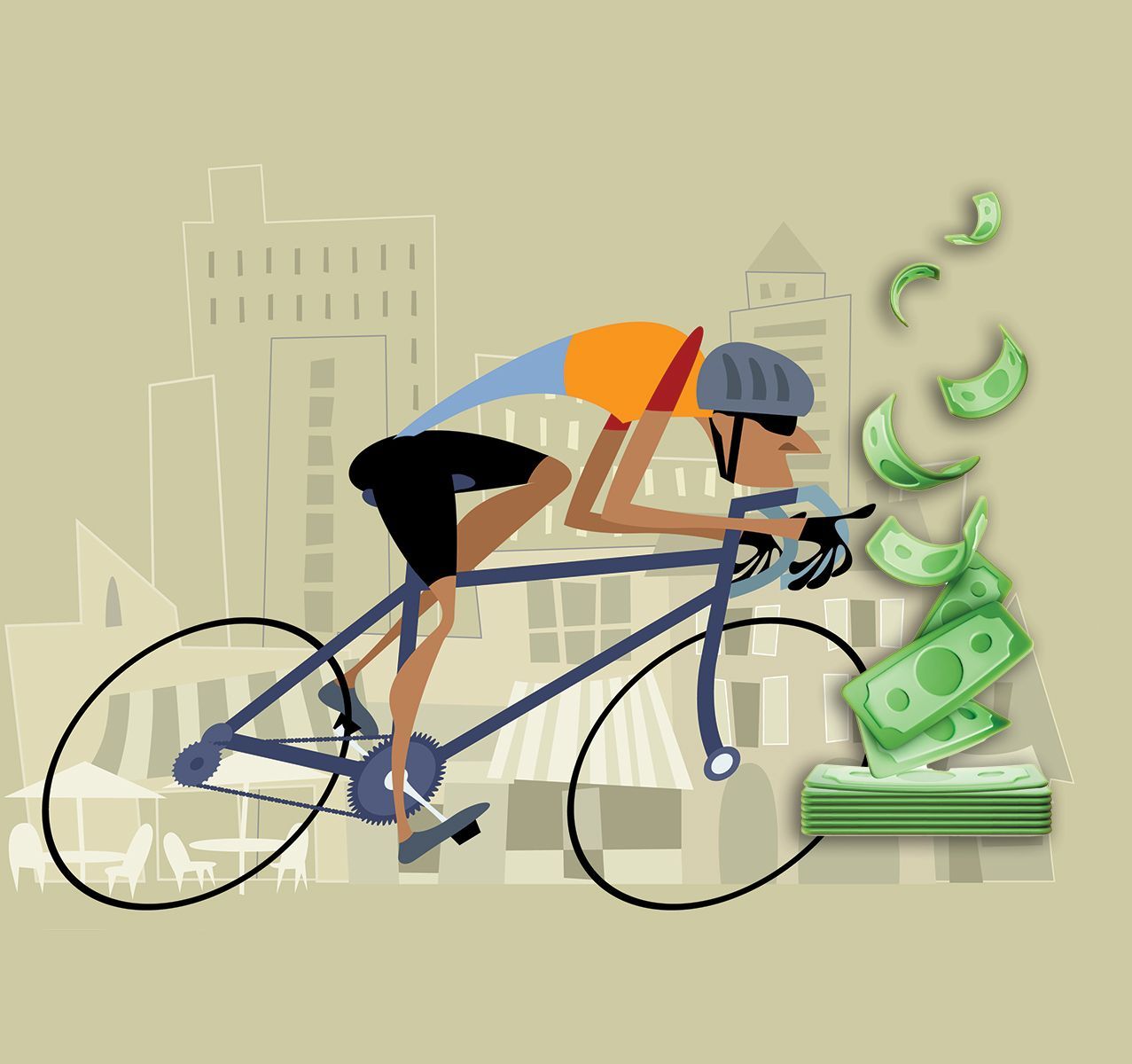
Professional cycling is a fiercely competitive arena where success demands remarkable dedication, natural talent, and strategic planning. But how financially rewarding is it, and how realistic is it to make a living as a competitive cyclist?
In this article, we'll examine the average earnings that cyclists can expect and the key factors influencing their income, such as performance and gender disparities. We'll also uncover the essential steps to achieving professional status. Finally, we'll look into the wallets of top earners to provide an insider’s perspective on the rewards and challenges of earning a living in this globally competitive sport.
Key topics will include:
- The average earnings of professional cyclists and the journey to turning pro
- Key factors influencing pro cyclists' income, including training intensity and gender disparities
- Legal nuances and essential steps to becoming a professional cyclist
- A peek into the wallets of top earners in the cycling world
Average Professional Cyclists' Earnings Overview

Professional cycling is a sport of passion, endurance, and strategy, but it also comes with its financial rewards and challenges. The earnings in professional cycling can vary widely based on the level of competition, gender, and individual achievements.
Earnings by level
- World Tour cyclists:
- The crème de la crème of professional cycling, WorldTour cyclists, enjoy higher salaries with a minimum of around $60,000. Top performers like Tadej Pogačar can earn upwards of $8.6 million, showcasing the lucrative potential at this elite level.
- Pro continental cyclists:
- A step below the World Tour, Pro Continental teams' cyclists have a broad salary range. Their earnings start at just over $40,000, with the potential to reach up to $200,000. The minimum wage for this level is set at around $44,000.
- Continental cyclists:
- At the Continental level, the financial landscape changes significantly. Some cyclists might earn nothing, while others can make up to $40,000. This level represents the broadest range in earnings, highlighting the financial uncertainties for emerging professionals.
Earnings by gender
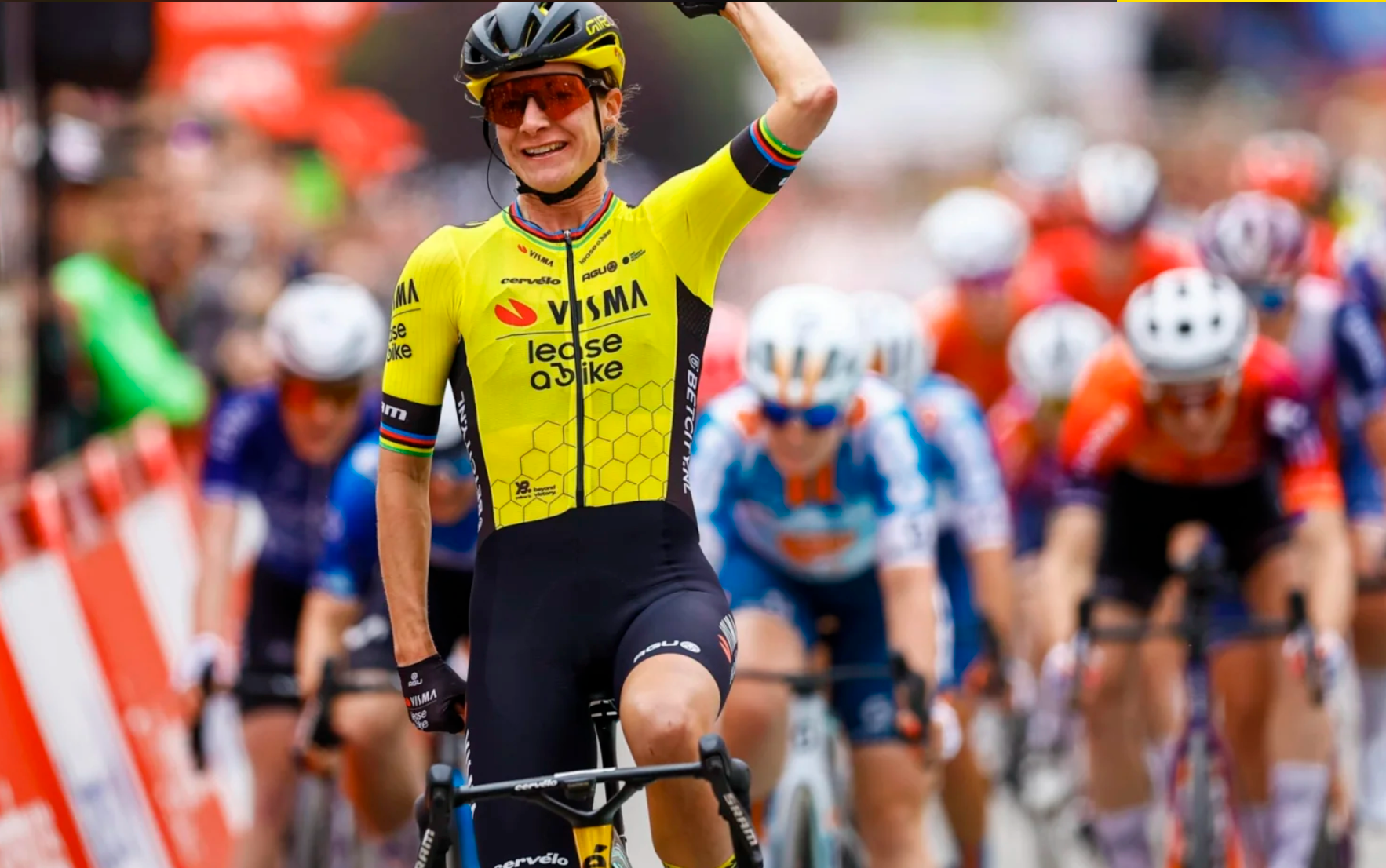
- Men: Male cyclists at the World Tour level have a minimum salary of just under $60,000. However, star athletes in men's cycling can earn multimillion-dollar salaries, with the highest earners, like former world champion and Team Sky player Chris Froome, making around $7.9 million.
- Women:
- The UCI has recently established minimum salary requirements for professional women cyclists, although these figures are not yet on par with those of their male counterparts.
- In 2020, the minimum salary for World Tour female star riders was around $21,000, which increased to $28,000 in 2021. Despite the progress, even top female pros like Marianne Vos earn just over $100,000, significantly less than their male counterparts.
The financial landscape of professional cycling is as varied as the sport itself. While top male cyclists can earn multimillion-dollar salaries, the earnings drop significantly outside the World Tour level and for female cyclists.
Efforts to establish minimum wages for women and lower-tier cyclists are steps toward financial equity in the sport. However, the journey toward parity continues, reflecting the broader challenges within professional sports.
Some Additional Income Sources
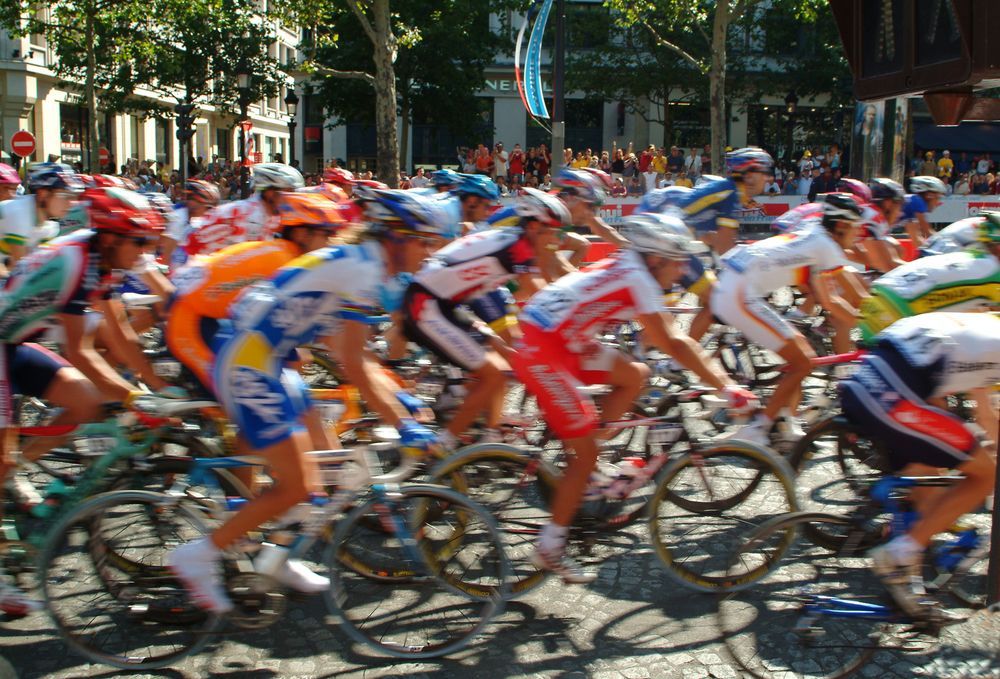
Professional cyclists, much like athletes in other sports, have the potential to supplement their income through various sources beyond their base salaries or winnings from races. Here's a breakdown of these additional income sources and the potential each holds:
- Prize money
- Potential: Highly variable, depending on the race and the cyclist's finishing position. For example, the winner of the Tour de France can earn around $500,000 in prize money, with even more available through stage wins and special jerseys (e.g., sprinter's, climber's).
- Frequency: Seasonal, tied to the race calendar.
- Endorsement deals
- Potential: Can range from a few thousand to millions of dollars annually, heavily dependent on the cyclist's marketability, achievements, and social media presence.
- Frequency: Typically annual contracts, with long-term deals possible for top athletes.
- Appearance fees
- Potential: Cyclists, especially well-known ones, can earn between $1,000 to $50,000 for participating in events, criteriums, or promotional activities.
- Frequency: As opportunities arise, often in the off-season.
- Bonuses
- Potential: Teams and sponsors may offer bonuses for wins, podium finishes, or achieving specific targets (e.g., winning a Grand Tour stage might net a bonus of $10,000 to $100,000).
- Frequency: Tied to performance, seasonal.
- Criteriums
- Potential: Post-Tour de France criteriums can be lucrative, with top cyclists earning $20,000 to $100,000 per event for participation.
- Frequency: Mainly in July and August, immediately following the Tour de France.
- Social media and personal branding
- Potential: Through sponsored content, merchandise sales, and personal branding initiatives, cyclists can generate additional income. The potential varies widely based on the athlete's popularity and engagement rates.
- Frequency: Ongoing, with earnings tied to campaign schedules and merchandise sales.
- Coaching and consultancy
- Potential: Retired or semi-retired cyclists can leverage their expertise, offering coaching, training camps, or consultancy services. Rates can vary from $50 to $200 per hour or more for personal coaching.
- Frequency: As demand dictates, often year-round.
- Book deals and speaking engagements
- Potential: Successful cyclists with compelling stories can earn through book sales and paid speaking engagements, potentially netting $5,000 to $20,000 per event.
- Frequency: Variable, often post-career or during the off-season.
- Merchandise sales
- Potential: Selling branded merchandise, from apparel to accessories, can provide an additional revenue stream. Earnings depend on the cyclist's popularity and the quality of the merchandise.
- Frequency: Ongoing, with peaks during major races and the holiday season.
These additional income sources can significantly augment a professional cyclist's earnings, with top athletes leveraging multiple streams for financial stability and growth.
Key Factors Influencing Pro Cyclists' Income

The world of pro cycling is as competitive financially as it is on the road. Many factors can influence a cyclist's income, each playing a crucial role in determining their earning potential. Here's a breakdown of the key factors influencing professional cyclists' income:
Performance and achievements
- Impact: High
Success in major races, especially Grand Tours (Tour de France, Giro d'Italia, Vuelta a España), significantly boosts a cyclist's market value. Stage wins, wearing leader's jerseys, and overall victories can lead to lucrative contract offers and bonuses.
Marketability and sponsorship appeal
- Impact: High
Cyclists with a strong personal brand and a large social media following are more attractive to sponsors. Their ability to influence and engage fans translates into additional endorsement deals and personal sponsorships, enhancing their income.
Team role and specialization
- Impact: Moderate to High
A rider's role within a team (e.g., team leader, domestique, sprinter, climber) and their specialization in certain types of races can influence their salary. Team leaders and cyclists who excel in specific disciplines often command higher salaries.
Experience and longevity
- Impact: Moderate
Veterans of the sport with a proven track record of consistent performance tend to have higher earning potential. However, emerging talents can also secure significant contracts based on their future potential.
Gender
- Impact: High
Historically, there has been a significant pay gap between male and female professional cyclists. While efforts are being made to address this disparity, male cyclists generally continue to earn more than their female counterparts.
Team budget and sponsorship deals
- Impact: High
The financial health and sponsorship deals of a cyclist's team can greatly affect individual salaries. Teams with larger budgets and more lucrative sponsorships can offer higher wages and better support.
Nationality and market
- Impact: Moderate
A cyclist's nationality can influence their income, especially if they are from or compete for a team based in a country with a strong cycling culture and market. This can affect sponsorship opportunities and salary negotiations.
Contract negotiations and agent representation
- Impact: Moderate to High
The effectiveness of contract negotiations, often facilitated by agents, can significantly impact a cyclist's salary. An experienced agent can leverage a rider's achievements and marketability to secure better terms.
Economic climate and cycling popularity
- Impact: Moderate
The overall economic climate and the popularity of cycling in various regions can influence sponsorship budgets and, consequently, cyclists' incomes. Economic downturns or surges in cycling's popularity can have a direct impact on earnings.
Understanding these factors is crucial for cyclists aiming to maximize their earning potential. It also highlights the complex ecosystem of professional cycling, where financial success is influenced by a combination of personal achievement, market forces, and strategic career management.
Essential Steps to Becoming a Professional Cyclist
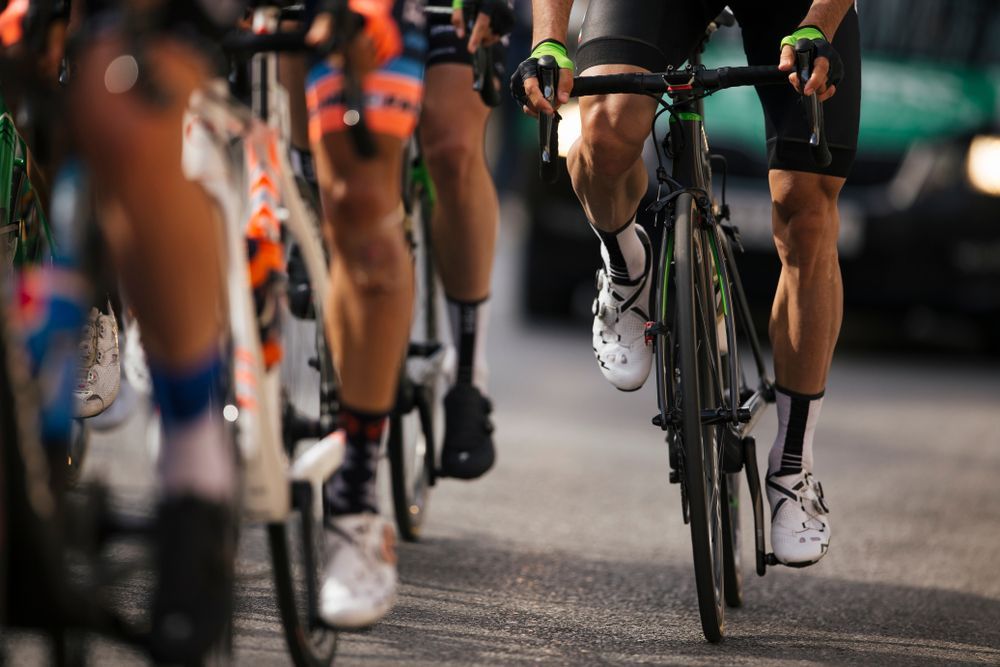
Embarking on the journey to become a professional cyclist involves a blend of rigorous training, strategic career moves, and navigating the legal and organizational aspects of the sport. Here’s a comprehensive guide to the essential steps and legal nuances aspiring cyclists should be aware of:
- Dedicated training: Commit to a structured training regimen, typically involving 2 to 6 hours of cycling daily, complemented by strength training to build core and leg muscles essential for endurance and power.
- Nutrition: Adopt a balanced diet rich in proteins, carbohydrates, fruits, and vegetables to fuel your body for the demands of professional cycling.
- Learn the rules: Familiarize yourself with USA Cycling's rulebook and the regulations of competitive cycling as governed by the Union Cycliste Internationale (UCI), the sport's global governing body.
- Gain experience: Join a high school, or college team, or a local cycling club to hone your skills, build a competitive edge, and start networking within the cycling community.
- Compete: Start competing in local races to build your racing technique, confidence, and reputation. Success in these events can attract attention from professional teams.
- Coaching: Engage with a seasoned cycling coach to refine your technique, strategy, and training regimen. A good coach can also provide valuable advice on nutrition and equipment.
- Specialization: Identify and focus on a specific type of cycling event (e.g., time trials, criteriums, stage races) that matches your strengths and interests.
- Sponsorship and support: While challenging, securing sponsorships can help cover the costs of equipment, training, and travel, which are crucial for advancing to professional levels.
- Professional exposure: Achieving visibility through performance in amateur contests increases your chances of being noticed by scouts from professional teams.
- Join a professional team: The ultimate goal is to receive an offer to ride for a professional team, which may come through standout performances in events where scouts are present.
Legal nuances
- Age restrictions: Be aware of age requirements for participation in certain races, which can vary by country and competition level.
- UCI registration: Professional cyclists must be registered with the UCI, which involves adhering to its rules, including anti-doping regulations.
- Contracts: Professional cyclists typically sign contracts with their teams, outlining salary, duties, and expectations. Understanding the terms and conditions of these contracts is crucial.
- Insurance and health: Professional cycling teams usually provide health insurance, but understanding the coverage details, including provisions for injuries and rehabilitation, is important.
- Intellectual property: Your image and likeness can be used for team promotions and sponsorships. Contracts often detail these arrangements, so it’s vital to understand how your image may be used.
- Doping regulations: Strict adherence to anti-doping rules is a legal and ethical requirement in professional cycling. Familiarize yourself with the World Anti-Doping Agency (WADA) code and UCI’s anti-doping regulations.
Navigating the path to becoming a professional cyclist requires physical preparation, skill development, and a deep understanding of the sport's legal and organizational framework. By focusing on these essential steps and legal nuances, aspiring cyclists can better position themselves for success in the competitive world of professional cycling.
Top 10 Highest Paid Cyclists in 2024
In 2024, professional cycling continues to be dominated by a few standout athletes, commanding salaries that set them apart in the world of endurance sports. Here's a look at the highest-paid cyclists and their earnings:
- Tadej Pogačar: Earning an impressive $6.6 million (€6,000,000) annually, Pogačar remains at the pinnacle of professional cycling, reflecting his exceptional talent and achievements on the road.
- Primož Roglič: With a salary of $4.95 million (€4,500,000), Roglič's move to Bora-Hansgrohe has paid off, marking him as one of the sport's top earners.
- Jonas Vingegaard: The Danish cyclist has seen a significant salary leap to $4.4 million (€4,000,000), a testament to his value and potential within the peloton.
- Mathieu van der Poel: Matching Vingegaard, van der Poel also commands a salary of $4.4 million (€4,000,000), underscoring his versatility and success across different cycling disciplines.
- Wout van Aert: Earning $3.85 million (€3,500,000), van Aert's all-around capabilities on the bike continue to make him a highly valued athlete in the cycling world.
- Remco Evenepoel: The young rider Belgian star takes home $3.08 million (€2,800,000), reflecting his rising status and potential for future dominance.
- Tom Pidcock: Despite a reported discrepancy in his salary figures, Pidcock's earnings for 2024 are listed at $2.97 million (€2,700,000), placing him among the sport's top earners.
- Adam Yates: Also earning $2.97 million (€2,700,000), Yates's consistent performances have solidified his place as one of the leading cyclists in the world.
- Egan Bernal: The Colombian climber earns $2.75 million (€2,500,000), a reflection of his Grand Tour-winning potential and marketability.
- Carlos Rodríguez: A newer name among the top earners, Rodríguez earns $2.75 million (€2,500,000), indicating high expectations for his future in the sport.
These salaries, exclusive of bonuses or prize money, highlight the financial rewards available at the pinnacle of professional cycling. The figures underscore the sport's competitive nature, not just on the road but also in its financial aspects, with athletes like Pogačar leading the pack both in terms of performance and earnings.
Cycling Accidents Happen. Bike Legal has Your Back
Whether you're training for your next race or enjoying a leisurely ride, the unexpected can happen, putting your safety at risk. In the unfortunate event of a bicycle crash, Bike Legal is here to support the cycling community. We understand the unique challenges cyclists face, and we're dedicated to protecting your rights and securing the compensation you deserve. Reach out to us for expert guidance and compassionate assistance as we help you get back on the road to recovery. Don't navigate this journey alone—let us be your trusted advocate on and off the bike.
Ready to take your cycling career to the next level with peace of mind? Call us today at (877) 245-3534.
FAQs on Professional Cycling Career
How much money do professional cyclists make?
Professional cyclists' earnings vary widely based on their level, achievements, and marketability. Continental riders might earn as little as nothing up to $40,000, while Pro Continental riders' salaries range from around $40,000 to $200,000.
WorldTour riders have a minimum salary of just under $60,000, with top performers like Tadej Pogačar earning upwards of $6 million annually. These figures exclude bonuses and endorsement deals, which can significantly augment a cyclist's income.
How much do Tour de France riders get paid?
The Tour de France offers substantial prize money, with the overall winner receiving around $500,000. However, it's traditional for the winner to share this prize with their team members. Also, there are earnings for stage wins, wearing the leader's jerseys, and other classifications, which can add up.
However, the base salary of riders from their professional trade teams forms the bulk of their income, with the Tour de France prize money being a bonus.
How hard is it to go pro in cycling?
Going pro in cycling is extremely challenging, requiring exceptional physical fitness and cycling skills and a significant commitment to training, diet, and competition. Aspiring professionals must also navigate the complexities of the sport's organizational structure, including competing in amateur races, gaining visibility, and securing a position on a professional team.
The journey is demanding, with success depending on a combination of talent, hard work, strategic career decisions, and sometimes a bit of luck.
Can cycling be a career?
Yes, cycling can be a career for those who are deeply committed and possess the necessary talent and work ethic. Professional cyclists compete in races worldwide, earn salaries from their teams, and can supplement their income through prize money, endorsements, and personal sponsorships.
However, making cycling a sustainable career requires reaching the upper echelons of the sport, which is an incredibly challenging and competitive process. For those passionate about cycling and willing to dedicate themselves fully, it can be a rewarding career path both personally and professionally.


